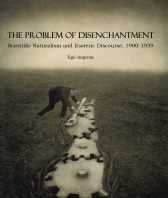The European Society for the Study of Western Esotericism has just launched its new website. The old one dated from the foundation of the society ten years ago, and a new, cleaner, more functional website was certainly long overdue. Hopefully this does the trick!
We are also now only a few days away from the biannual ESSWE conference, which this year takes place in Riga, Latvia. The program has now been available, and can be downloaded from the website. The topic is “Western Esotericism and the East”, which should be an excellent opportunity for continuing the discussion on the “Western” in esotericism, and issues of comparison. In addition to keynotes by Wouter Hanegraaff, Charles Burnett, and Alison Caudert, it is a program packed full with a lot of interesting talks and topics, which should make for a stimulating (if exhausting) few days in the Baltic.
Finally, I’ll put on my membership secretary hat and take the opportunity to bring a message to members: you will need to reset your passwords to be able to use it. Luckily, this is a very easy automatic process now (before, I had to do this manually for every single person, so at least there is one person who is quite happy with this new arrangement!): simply follow this link, enter your email address, and take it from there.











